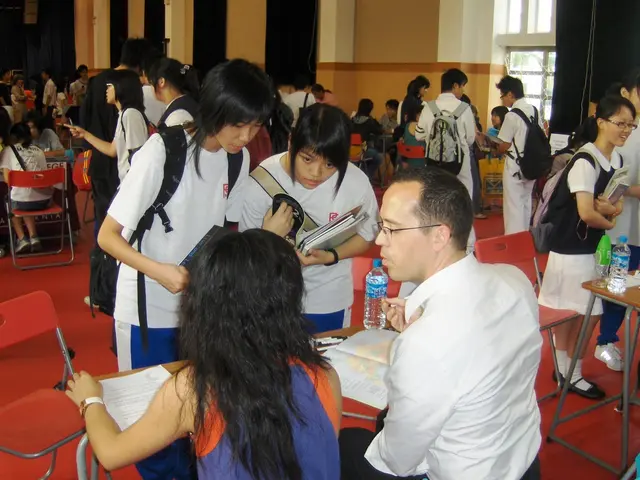A Fresh Leaf for Relations: Merz and Trump Aim for Quick Resolution on Ukraine and Trade
Trump and Merz aim for swift resolution in their trade disagreement via an initial phone conversation
Share on: Facebook, Twitter, Whatsapp, Email, Print, Copy Link
Just days into his tenure, Chancellor Merz picked up the phone to chat with the new kid on the block, US President Trump. In a cordial conversation, Trump promised his backing for joint European efforts concerning Ukraine. Both leaders also shared a common goal—avoiding a trade war.
Post-discussion, the tone was relaxed and positive, according to the German camp. The call, held on the second day of Merz's term, was marked by Trump's congratulations on his election and inauguration. Merz, in return, assured the USA of its continued status as a "crucial ally and strategic partner."
Ukraine was the main agenda. The duo sought close cooperation to put an end to the Russian invasion, as reported by government spokesman Stefan Kornelius. Merz echoed Trump's demand that the violence in Ukraine must cease immediately. Russia needs to comply with a ceasefire to pave the way for negotiations. Trump promised to endorse the German endeavors "robustly," working alongside France, the UK, Poland, and other European counterparts to secure a lasting peace.
A Speedy End to Trade Skirmish
Trade conflicts between the USA and the EU dominated the second half of their conversation. Merz and Trump expressed their mutual wish to promptly settle disputes between the two powerhouses. However, a resolution seems elusive at the moment. Just before their tête-à-tête, the EU Commission announced they were readying additional tariffs on U.S. imports valued at up to €95 billion, should negotiations with Washington fail to produce results.
A deadline set by Trump for EU proposals expires in July. If no agreement is reached, Trump intends to levy extensive new tariffs on goods imported from the EU. These tariffs would build upon the ones he has already imposed.
Merz, in the past, has dismissed the US administration's criticism of the Federal Office for the Protection of the Constitution's classification of the AfD as "verified right-wing extremist." Simultaneously, he emphasized the need for EU and US tariffs to be abolished. "I don't wish to see us plunged into a full-blown trade war," he stated. He also advocated for the expansion of mutual recognition of technological standards.
Merz extends an Invitation to Trump
Merz and Trump were mostly unknown companions prior to this call. They had barely crossed paths in New York in the past. According to media briefings from the German government, Merz extended an invitation to Trump to visit Germany. He reminded the President of his German roots, sharing that his ancestors' hometown was Kallstadt on the Wine Route in Rhineland-Palatinate. Trump's grandparents had migrated from there to New York at the end of the 19th century.
Trump hinted at the possibility of accepting the invitation for a visit. To date, he has only been to Germany for the G20 summit in 2017, aside from brief stops at the Ramstein US Airbase.
In turn, Trump invited Merz to Washington. The Chancellor has publicly expressed his desire to travel to the States before the G7 and NATO summits in June, which are scheduled in the coming weeks. The G7 summit will occur in Canada in mid-June, followed by the NATO summit in The Hague.
- The economic and monetary union, a key focus of the European Union, is set to be a topic in ongoing conversations between Chancellor Merz and President Trump as they seek a swift resolution on trade disputes.
- Despite the cordial conversation between Merz and Trump, tensions remain high regarding tariffs, with the EU Commission recently announcing additional tariffs on US imports if no agreement is reached before July.
- In an attempt to ease trade conflicts, Chancellor Merz and President Trump have expressed their mutual desire to promptly settle disputes between the two economic powerhouses, while acknowledging the current resolution seems elusive.
- Chancellor Merz, in a bid to foster improved relations, has invited President Trump for a visit to Germany, highlighted by the President's German roots from his ancestors' hometown on the Wine Route in Rhineland-Palatinate.
- As part of the rapidly evolving political landscape, the future of the economic and monetary union, war-and-conflicts, policy-and-legislation, and general news will continue to be influenced by the decisions made between Merz and Trump in the arena of international politics.








